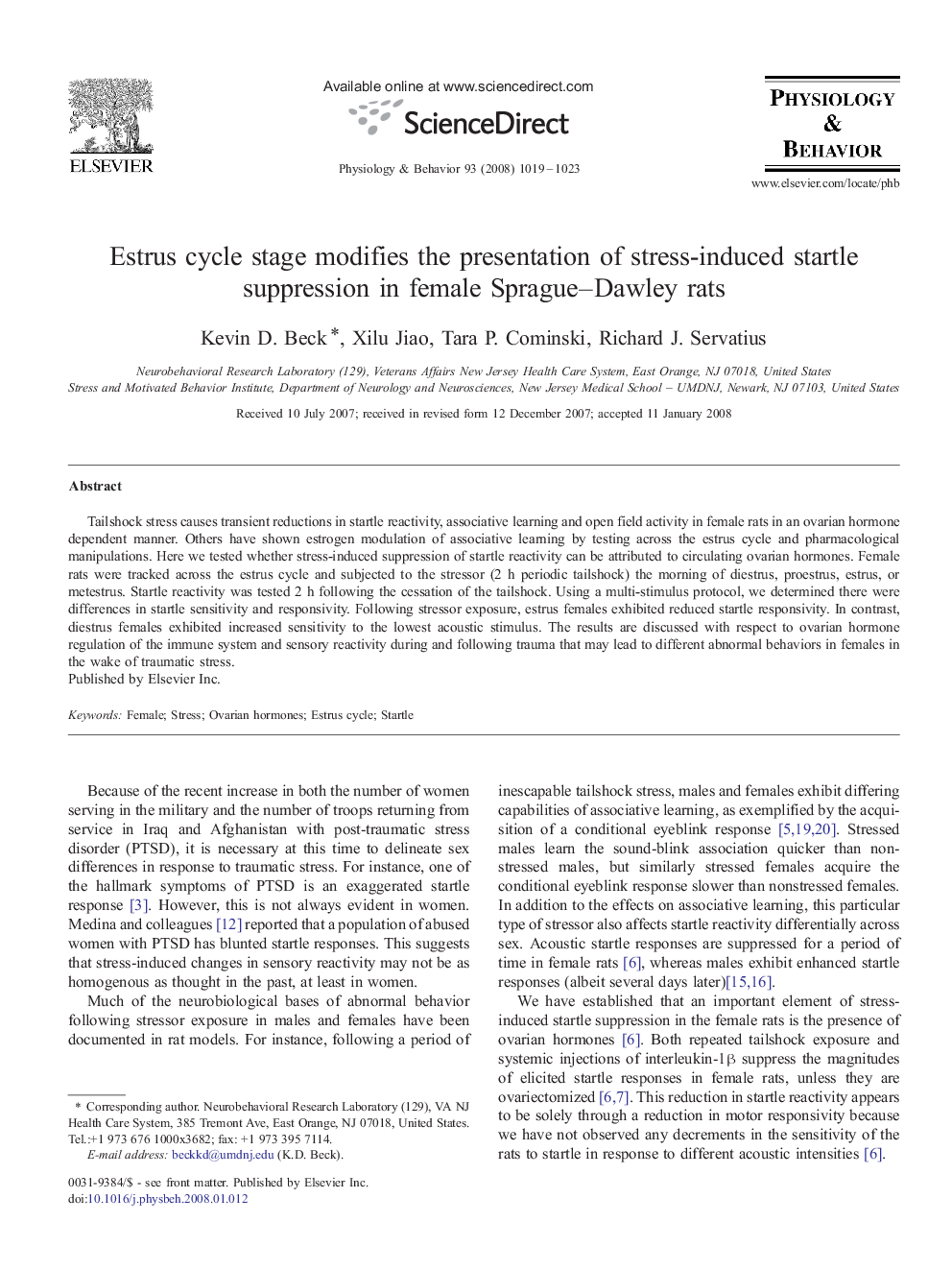| Article ID | Journal | Published Year | Pages | File Type |
|---|---|---|---|---|
| 2845573 | Physiology & Behavior | 2008 | 5 Pages |
Tailshock stress causes transient reductions in startle reactivity, associative learning and open field activity in female rats in an ovarian hormone dependent manner. Others have shown estrogen modulation of associative learning by testing across the estrus cycle and pharmacological manipulations. Here we tested whether stress-induced suppression of startle reactivity can be attributed to circulating ovarian hormones. Female rats were tracked across the estrus cycle and subjected to the stressor (2 h periodic tailshock) the morning of diestrus, proestrus, estrus, or metestrus. Startle reactivity was tested 2 h following the cessation of the tailshock. Using a multi-stimulus protocol, we determined there were differences in startle sensitivity and responsivity. Following stressor exposure, estrus females exhibited reduced startle responsivity. In contrast, diestrus females exhibited increased sensitivity to the lowest acoustic stimulus. The results are discussed with respect to ovarian hormone regulation of the immune system and sensory reactivity during and following trauma that may lead to different abnormal behaviors in females in the wake of traumatic stress.
